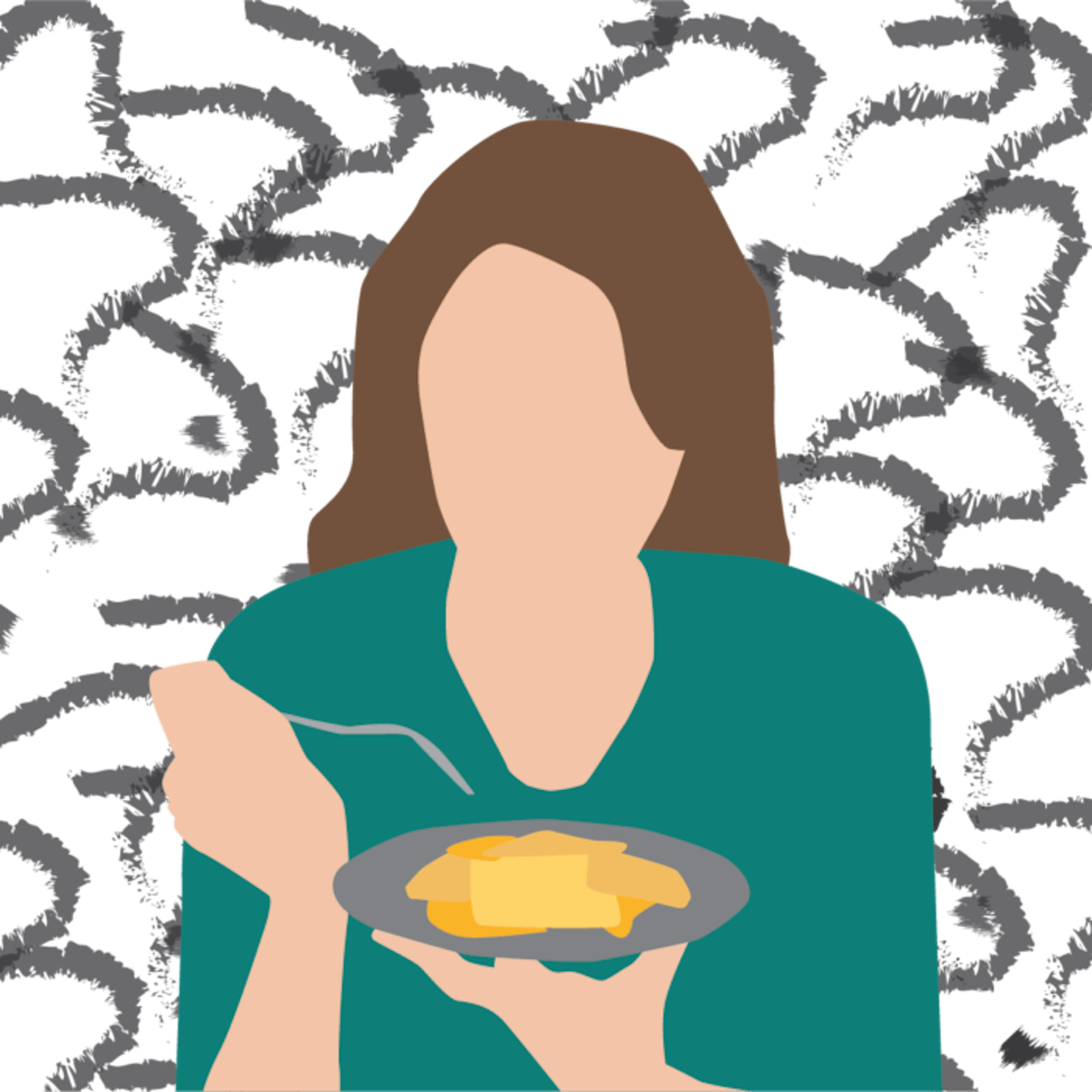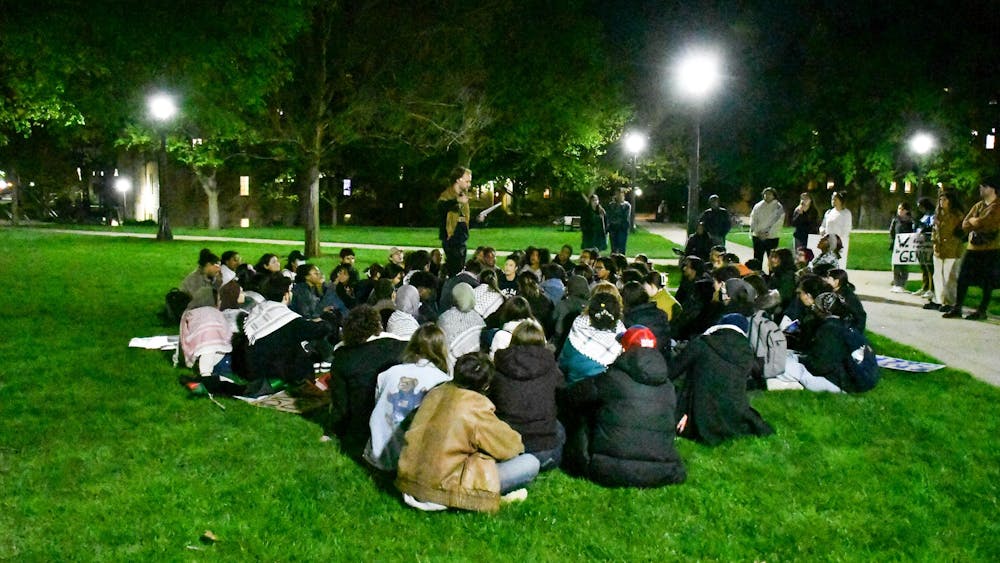
About a month ago, I tested positive for COVID-19. Unfortunately, I was not one of those people who experienced the virus without any symptoms. I was immediately hit with the worst fever and headache I’ve ever felt, my entire body ached to the point where I could barely get out of bed, I was coughing constantly, my throat burned like I was swallowing fire, I felt a strange pressure in my chest, I found it difficult to take a deep breath and I completely lost my sense of taste and smell. Fortunately, I was not one of the millions of people whose symptoms got so bad that they had to go to the hospital.
A month later, my symptoms have mostly gone away except for one: I still cannot taste or smell anything at all. While at first this was the symptom which bothered me least because it was better than, say, having difficulty breathing, I’ve come to realize how much of an impact it’s had on my well-being and day-to-day life. I don’t mean to sound like I’m complaining about this because, thanks to my age, health and luck, I was fortunate to not experience the virus too severely like so many people around the world. Rather, I thought I’d use this column to share how my view of the world has been altered a bit in the past month.
Before getting into my own experiences with this peculiar symptom, I’ll explain the research I’ve found behind it. While a loss of smell and taste can be a side-effect of the common cold due to congestion, this is not necessarily what happens when someone gets COVID. Instead, SARS-CoV-2 (the virus which causes COVID-19) may be affecting the functioning of olfactory support cells in the upper nasal cavity. According to an associate professor of neurobiology at Harvard Medical School, “the novel coronavirus changes the sense of smell in patients not by directly infecting neurons but by affecting the function of supporting cells.” Luckily, this means that anosmia (this loss of smell and taste) is typically not permanent. The science isn’t completely certain at this point as to why anosmia occurs, but it’s become one of the most telling signs of COVID.
We take in the world around us based on our five senses: sight, hearing, touch, smell and taste. For those of us lucky enough to be born with all five of those senses functioning, they are what bring color — both literally and figuratively — into our lives. Whether it’s watching a beautiful sunrise, hearing the voices of our loved ones, holding someone’s hand, tasting our favorite foods or smelling clean laundry, our senses allow us to fully experience life. When we suddenly lose one or two of those senses, it can be quite destabilizing and unsettling.
I remember biting into a piece of ravioli pasta a month ago and being utterly confused as to why I was met not with the familiar cheesy and tomatoey flavor, but rather a mushy, starchy, flavorless cloud of nothing. Figuring the ravioli was just off that day, I shrugged and tried bits of the rest of my lunch only to be continuously met with no flavor. I tried gurgling some Listerine mouthwash, knowing its strong, chemical taste couldn’t possibly be missed, only to feel like I was gurgling water. From that meal up to a month later, eating — something that’s always brought comfort and joy to my life — has become an upsetting experience that’s affected my mental and physical health in ways I didn’t expect.
Smelling and tasting is a fundamental way through which we connect with the world and people around us. When that ability to smell and taste is all of a sudden lost, I’ve noticed that the world becomes a little duller and loses a bit of its color. The little sense of excitement I get whenever I pick up my favorite meals from the dining hall is met with disappointment when all I sense is a flavorless mixture of weird textures and mushiness. Walking outside and not being able to smell the earthy scents of an approaching spring or the aroma after it rains sucks small moments of joy out of everyday life. It can feel isolating at times; like I’m living behind a wall through which I can see the world but can’t fully experience it. It’s like when a word is on the tip of your tongue but you just can’t retrieve it: I know what the pizza on the plate in front of me is supposed to smell and taste like, but I just can’t reach it. It’s affected my mood and my appetite as well, as the amount that I eat has decreased significantly within the past month. I don’t eat until my stomach is begging me to because I don’t have much of an appetite. Eating food has become something done out of pure biological necessity rather than enjoyment and pleasure.
Granted, it’s only been around a month since I lost my smell and taste, and I’m incredibly lucky to only have these symptoms to deal with unlike the millions of people who have had to be hospitalized, put on ventilators or lost their lives due to COVID. I am not someone who likes drawing attention to myself (this is the same person who once got up and walked after tearing my ACL because “I didn’t want to worry anyone”), but I have to say that the way someone experiences life is altered when two of their five senses disappear out of nowhere, and the effects on my mental, emotional and physical health are hard to ignore. The past month has made me realize how important smell and taste are to our everyday lives. We don’t pay much attention to them, but — like most of the “little things” in life — it’s certainly something you notice when it’s gone. Hopefully, my taste and smell will return soon. Meanwhile, I’ll end by encouraging you to get vaccinated (I’ll direct you to fellow columnist Clark’s piece) and help bring this virus, the loss of life and the physical, mental, emotional, economic and social detriment it has had on our country and the world to an end.
Megumi Tamura is a freshman in the Gateway Program. She is originally from Ridgewood, New Jersey and enjoys going to museums, watching political debates and eating Jersey bagels. She can be reached at mtamura@nd.edu or @megtamura on Twitter.













